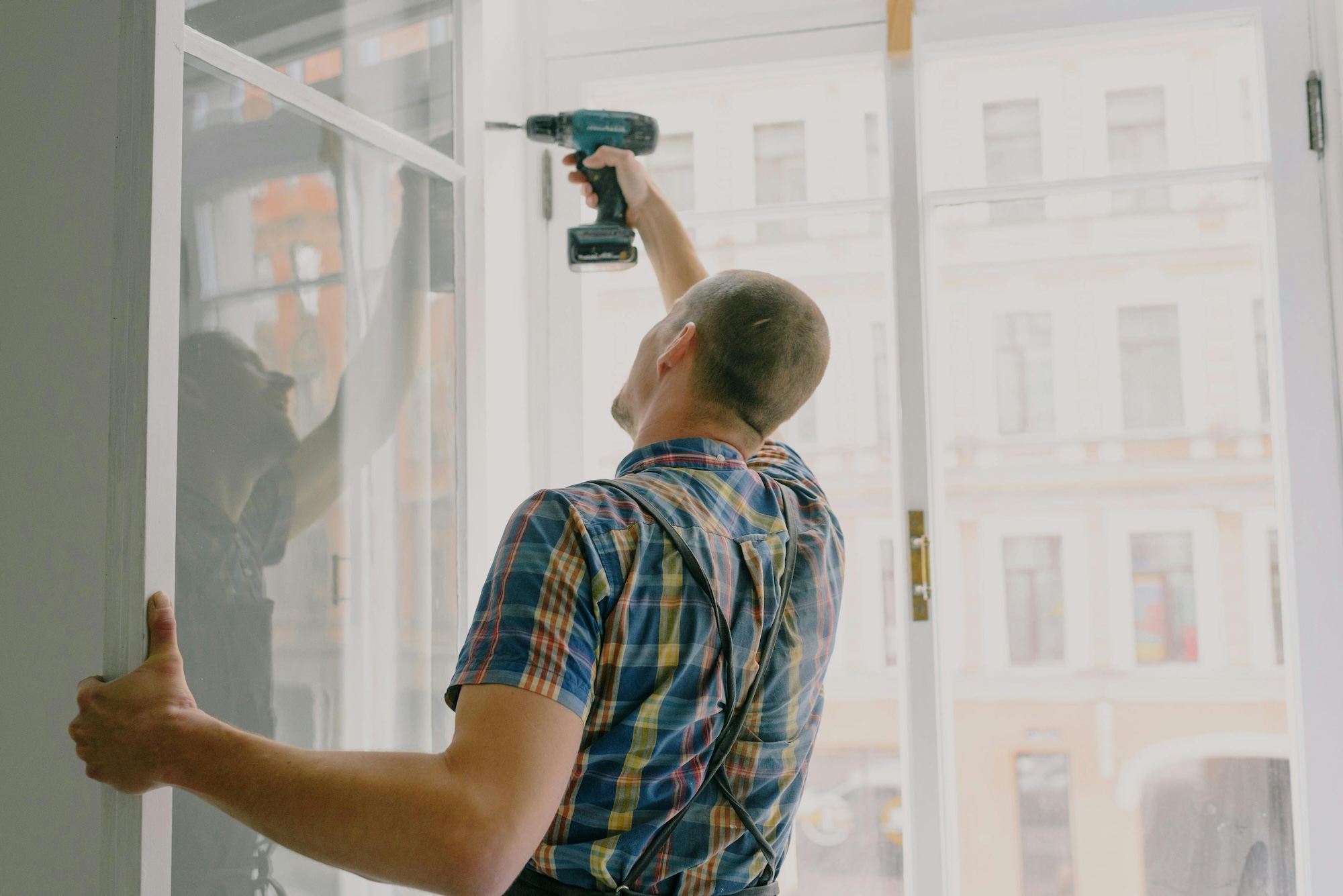How to Understand & Recharge Your Social Battery
Have you ever noticed that after spending time with friends and family, you feel energized and alive? Or when you’ve had a difficult conversation with someone, you suddenly feel drained? This is your social battery at work. Your social battery is the internal energy resource that allows you to interact with others in a healthy, meaningful way. It’s a mental, physical, and emotional reserve that allows us to engage in meaningful relationships and conversations with those around us.

Have you ever noticed that after spending time with friends and family, you feel energized and alive? Or when you’ve had a difficult conversation with someone, you suddenly feel drained? This is your social battery at work. Your social battery is the internal energy resource that allows you to interact with others in a healthy, meaningful way. It’s a mental, physical, and emotional reserve that allows us to engage in meaningful relationships and conversations with those around us.
When it’s low or depleted, we can feel exhausted, irritable, or even have difficulty connecting with people. Knowing how to recharge your energy levels is key to maintaining healthy relationships and thriving in social situations. In this article, we’ll explore what your social battery is and how to keep it full so you can make the most of your interactions with others. Let’s jump in!
What is a social battery?
“Social battery” is a metaphorical term that we use for the amount of energy we have for socializing. Your social battery is dependent on several categories:
- Your personality: Are you an extrovert? Or an introvert?
- The people you are with: Do you know them well? Are you on the same wavelength?
- The topic of discussion: Is it a topic you are passionate about? Or is it something that bores you?
- External factors: Is there loud pumping music? Are you in a peaceful environment?
- Internal factors: Did you get a good night’s sleep? Are you stressed about work?
All of these factors are what make up your social battery. For some, socializing can be stressful and overwhelming. They might find chit-chat and small talk with others drains their social battery quickly, and they feel exhausted and overstimulated. If you find yourself being drained in social situations quickly, this probably means that you have a small social battery and you need to recharge often.
Others feel that they are energized after socializing with others. They love talking to whoever they come across, and it would take a long time for them to feel drained of energy. If this sounds like you, then you probably have a long-lasting social battery, and you need less time by yourself.
Social battery for introverts

By definition, introverts need to spend more time in their own company. It’s often assumed that introverts want to be alone all the time, but this is far from the truth. Some introverts come across as “extroverted” and thoroughly enjoy spending time with their loved ones. Just like some extroverts have elements of being “introverted” and need alone time to recharge in between their social plans. However, introverts find that social situations drain their energy more quickly, and they don’t enjoy interacting with large groups of people for extended periods of time.
Maybe you enjoy spending time with your friends and family one-on-one, but you find that being in large groups with new people drains your social battery quickly. For introverts, it is important to recognize when their social battery has run low so that they can take the necessary steps to recharge it.
Social battery for extroverts
What does it mean for extroverts and their social battery? Extroverts tend to be outgoing and energetic individuals who thrive in social situations. They often find they can talk with whoever they come across and remain energized throughout the social event. However, if the external or internal factors mentioned earlier are not in place, their social battery can run low quickly. Maybe you know you’re an extrovert, but your brain is full of thoughts about work, and so you’re finding the party with your friends to be tiring. You know you’re good at conversation, but the bright lights and loud music distract you and overstimulate your brain.

It’s also worth noting that not all extroverts feel energized from being around people in energetic places. You might enjoy being around your close group of friends, but loud parties and small talk make you feel exhausted and need alone time. It’s important for extroverts to recognize when they need to take a break and recharge their social battery.
Examples of factors that drain your social battery
When it comes to determining the factors that drain a person’s social battery, it’s important to understand the context. The individuals’ personalities and the social situation they are in are the key factors. If you are a very introverted person, you will find these factors drain your battery quickly. If you are extremely extroverted, you may find that these factors take a long time to drain you of your energy, if at all.
Here are some factors that may contribute to a drained social battery.
1. The person you are interacting with.
Sometimes, we find ourselves stuck with someone we have nothing in common with. Maybe they have opinions that we find upsetting, or they don’t respect your personal space. It could just be their loud voice, or it could be that they are someone you’ve never met before. Whatever it is, if you find yourself being drained, that could be because of the person you are talking to.
Dealing with difficult people can take more energy, as your brain is working harder to find common ground or to navigate stressful conversations. For example, a friend of a friend who you have nothing in common with or a senior work colleague who you want to impress, are both instances where the person you’re with could require more energy and could cause stress.

2. The duration of your interaction.
We all know that spending a long amount of time in social settings can exhaust you. Your brain has to be “on” for a long period of time without any rest. So it’s no surprise that no matter what the duration of your social battery if you’re socializing for long periods of time, you can end up drained.
Maybe you can attend brunch in the morning, but you might need a break of some quiet alone time before you head back out for a dinner party in the evening. A whole weekend-long event can leave even the most extroverted person feeling exhausted!
3. The size of the group.
Some people prefer one-to-one socializing, and others love being surrounded by big groups of friends. If you know yourself, you will be able to determine if you’re a “big group person” or more of a “one-to-one person.” Bigger groups = more noise and more distractions, so this can often end up overwhelming people and adding to the energy drain.

4. The dynamics of the interactions.
We’ve all been in a social situation where we feel like we are comparing ourselves to others or where we feel judged or inadequate somehow. This horrible dynamic can also drain your social battery and leave you feeling down.
As a woman, you might feel uncomfortable or stressed navigating socializing with a group of older men. If you belong to a historically marginalized group, then you will be left feeling drained and emotionally exhausted if you spend time with people who can’t understand your perspective.
5. Internal factors.
If you’ve got a lot on your mind, or you’re feeling ill, or you’ve got personal troubles in your life, it can be hard to muster up the energy to socialize. Putting on a brave face and hanging out with friends when you’ve got an anxious and stressed mind takes a lot of energy for some people. Maybe you’ve fallen out with your partner, or you’re worried about a big project at work. If so, engaging in small talk at a loud party takes the last bit of energy you have left.

6. Event-related stress.
Maybe your energy is being drained because of stress factors to do with the social event itself. It might be that you’ve got to give a speech, you know that your ex-partner is at the party, or the journey to the event was stressful. If this is the case, this could all add to how quickly your social battery becomes drained.
These situations aren’t always in our control, and they aren’t always expected. For example, if your car breaks down or something similar happens, you never would have expected it. The unpredictability can drain your social battery, too.
Signs of a low social battery
Signs of a low social battery can vary from person to person, but there are some common indicators:
1. Struggling with conversation.
Your brain feels foggy, people ask you questions you can’t answer, and you’re distracted by everything else going on around you. Your energy is running on empty and is probably starting to get overwhelmed.
2. Feelings of social anxiety.
Did that come across as mean? Do I have something in my teeth? Are they laughing at me? Feeling anxious and worrying about small things can be a telltale sign that you need some alone time. If your mind starts rushing with anxious thoughts, you might need to take time to recharge.
3. Disinterest in those around you.
Where usually you’re interested in the person in front of you, or at least you can feign interest, you’re now at the point where you find yourself desperate to get away. This is a telltale sign that your social battery is running on empty.
4. Feeling physically exhausted.
Your eyes are heavy, your legs hurt, and you’re constantly trying to cover up your yawns for fear of looking rude. These physical signs are telling you the obvious – it’s time to rest up!
5. Feeling depressed.
If you’ve ever been surrounded by friends but felt lonely and isolated, you might be experiencing a drained social battery. If you’re feeling uninterested, low energy, and sad, this could be because you’re in need of some me-time.
6. Comparing yourself with others.
Maybe you’re struggling to keep up with the conversations, or you’re worrying about how you look. It can be easy to slip into comparison habits when you’re feeling drained. Comparing yourself to others is a surefire self-sabotage tactic we fall into when we feel low.
7. Feeling overwhelmed.
If your senses are in overdrive, your heartbeat is racing, and you can’t seem to concentrate on one thing at a time, then this could be a symptom of a low social battery. Too much noise, talking to lots of people, or being “switched on” for long periods of time can fire our brains into overdrive. It’s time to recharge!
How to recharge your social battery
No matter whether you have a large or small social battery, there are always ways to recharge it. There are a few key steps that you can use to help recharge your social battery:
1. Set boundaries. Know when it’s time to step away and take some alone time.
2. Take care of your body. Eat healthy, exercise, and make sure that you are getting enough sleep
3. People watch. Observe the people around you, their conversations, and their interactions with each other to increase your understanding of group dynamics
4. Selectively choose who you spend time with. Surrounding yourself with positive energy is essential for increasing your social battery levels or at least ensuring that is doesn’t drain quickly.
5. Give yourself permission not to engage in small talk. If necessary, excuse yourself from situations where there is too much conversation and too little connection.
6. Try new activities. Take up a new hobby or challenge yourself to try something different to engage with people on a deeper level.
7. Spend time outdoors. Breathe in some fresh air and let nature invigorate your social battery.
8. Find an outlet. Find something that helps you recharge. This could be journaling, art, music, or any other creative activity that allows you to express your feelings without needing validation from others
Why is it important to know about your social battery?

It’s important to be aware of your social battery because it is the lifeblood of your relationships and interactions with others. When we interact with other people, our social battery gets drained. If we don’t take time out to recharge our batteries, they can become depleted, which can lead to feelings of exhaustion, loneliness, and disconnection from others.
Taking care of your social battery means taking time for yourself and making meaningful connections with those around you. By being mindful of our own needs and actively taking steps to recharge our social batteries when necessary, we can ensure that we can maintain strong relationships with ourselves and the people in our lives.
Additionally, by recognizing the importance of recharging your social battery, you can become more attuned to the needs of others and be better equipped to provide support. Taking care of your social battery is an important way of looking after yourself and your relationships.
Recharging your social battery doesn’t have to take a lot of time or effort. Just doing simple things like getting enough rest, engaging in enjoyable activities with friends, setting boundaries with people, and actively pursuing hobbies can help recharge it significantly. By prioritizing self-care activities that benefit both our physical and mental health, we can stay energized and connected with ourselves and our loved ones. Taking these steps can make all the difference in maintaining strong relationships and feeling personally satisfied. So don’t forget to check in on yourself.
Share this post to help others understand social batteries
So there you have it: what your social battery is, why it’s important to keep an eye on it, and how you can recharge it. We’ve wrapped these tips up nicely into one little blog post for you.
We hope you found this helpful and that you can use this knowledge to become even more self-aware. These are just general tips in order to check in on yourself and make sure you’re not pushing yourself into over-socializing and burning out.
Whether you’re an introvert or an extrovert, all human beings benefit from being with loved ones. It’s just about being in tune with yourself enough to know when too much socializing is doing more harm than good.
Just remember that not everyone will experience a drained social battery during the same events throughout their lives. As we grow older, we might find different social environments stressful and difficult. So don’t worry if you feel a shift at different points in your life.
Finally, don’t forget to share this post with your friends and followers – knowledge is power, and knowing your social battery limits can help you work on them and become even stronger.
You might also enjoy Social Anxiety vs. Introversion: 5 Key Differences or What is Social Introversion?




